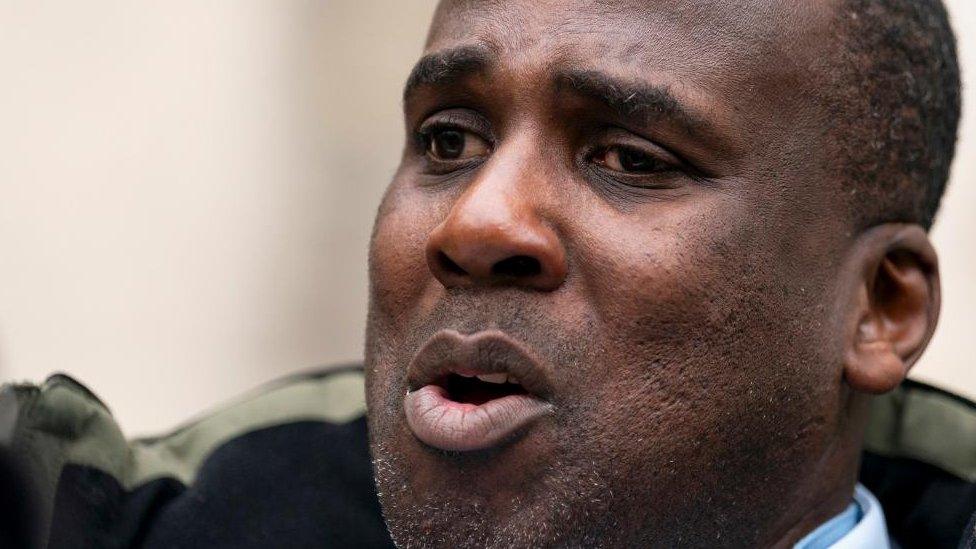Hope quashed murder conviction will help others
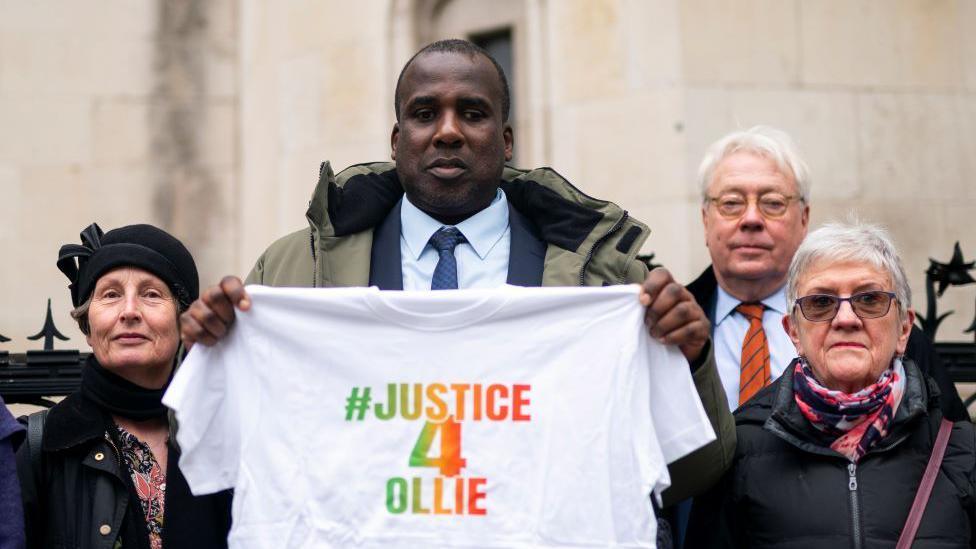
Oliver Campbell's conviction has been overturned after 33 years
- Published
Campaigners who fought to overturn the murder conviction of a man with learning disabilities, who felt forced to confess, have spoken of their relief at seeing his conviction quashed after 33 years.
Three judges ruled that the conviction of Oliver Campbell, who now lives in Suffolk, in 1991 for the murder of Baldev Hoondle in east London the previous year was "unsafe".
Mr Campbell, now in his 50s, told the BBC he felt he could now "plan the rest of my life".
One campaigner said they hoped Mr Campbell's case could become a "beacon of hope" for other people wrongly convicted.
Three justices at the Court of Appeal ruled the conviction "unsafe" based on new evidence that would provide more information than available at trial regarding Mr Campbell's "mental state when he made his confessions".
Mr Campbell was jailed for life in 1991 over the murder of Mr Hoondle, who was shot dead during a botched robbery in Hackney carried out by two men.
His lawyers and supporters said his confession at the time mirrored what he had watched on BBC's Crimewatch.
'Battled for him'
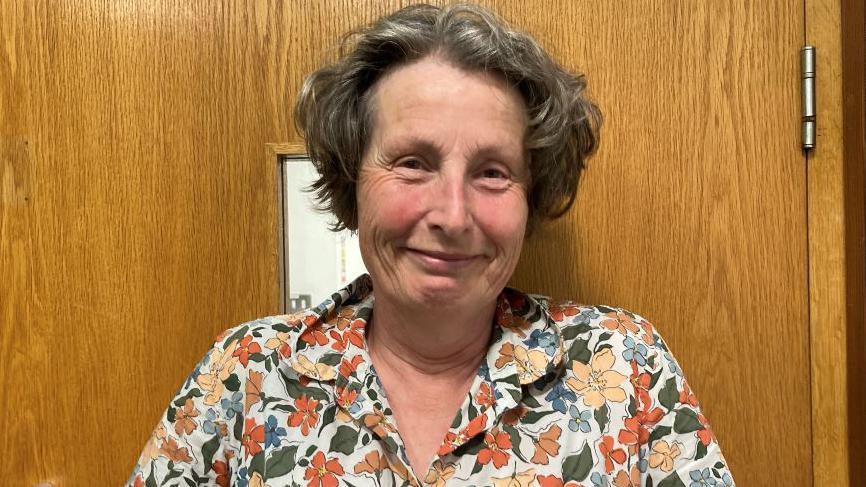
Maggie Barradell has been a long time campaigner for Mr Campbell and said it was brilliant to see his conviction overturned
Maggie Barradell became aware of Mr Campbell's case while working for former Labour Ipswich MP Sandy Martin.
She said it was clear to her it had been a "flawed conviction from the start".
"If you know Ollie you know he’s not capable of it, that's the first thing. And when you look at the evidence there’s absolutely nothing there," she said.
"It was a confession under duress because Ollie was told it would make things better and he could just leave and he just wanted to go home.
"He’d been there for two days, 11 interviews, it’s just unacceptable.
"Especially for somebody with the learning disability Ollie has. You wouldn’t do that to anyone, you couldn’t do that today you wouldn’t be allowed to."
She credited Mr Campbell's resilience and the people who have "battled for him" in helping secure the quashed conviction after so long.
She said the overturning of his conviction was "brilliant" but she was acutely aware of the life Mr Campbell has not had as a result of his time in prison and on licence since being released in 2002.
'Staggeringly long time'
Mr Martin first took up Mr Campbell's case in parliament.
He said: “It’s a remarkable day and obviously I’m very, very pleased for him and I know he’s very pleased for himself.
"Nobody should have to live with a conviction for a murder that they didn’t commit for 33 years."
He said although improvements had been made he believed "there are a lot of lessons that could and should be learnt".
"We cannot afford to live in a society where innocent people are convicted of murder, it’s just not on," he said.
Mr Martin said it had been a "staggeringly long time" in quashing Mr Campbell's conviction.
"But maybe, just maybe, Oliver’s case will be a beacon for other people who have had longstanding wrongful convictions and we will see some of those overturned," he added.
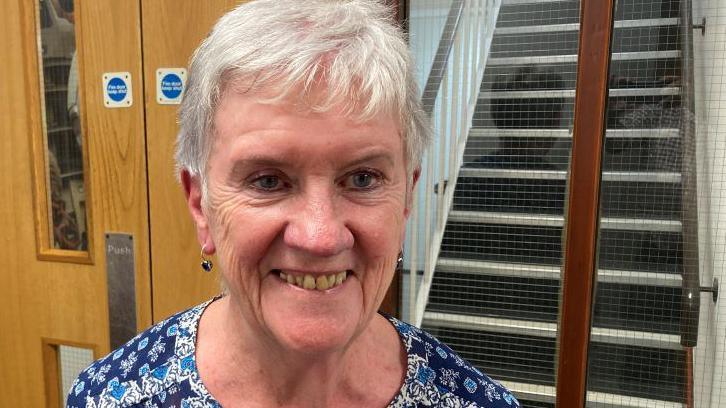
Teresa MacKay has been supporting Mr Campbell since he moved to a prison in Suffolk
Campaigner Teresa MacKay, first met Mr Campbell when he was moved to Hollesley Bay Prison, near Woodbridge.
She said: "I couldn’t see him killing a fly, he’s totally incapable, he’s known as a gentle giant."
"We just hope he is able to have a better life," she added.
Listen: Oliver Campbell talks to Richard Daniel
Get in touch
Do you have a story suggestion for Suffolk?
Follow Suffolk news on BBC Sounds, Facebook, external, Instagram, external and X, external.
Related topics
- Published11 September 2024
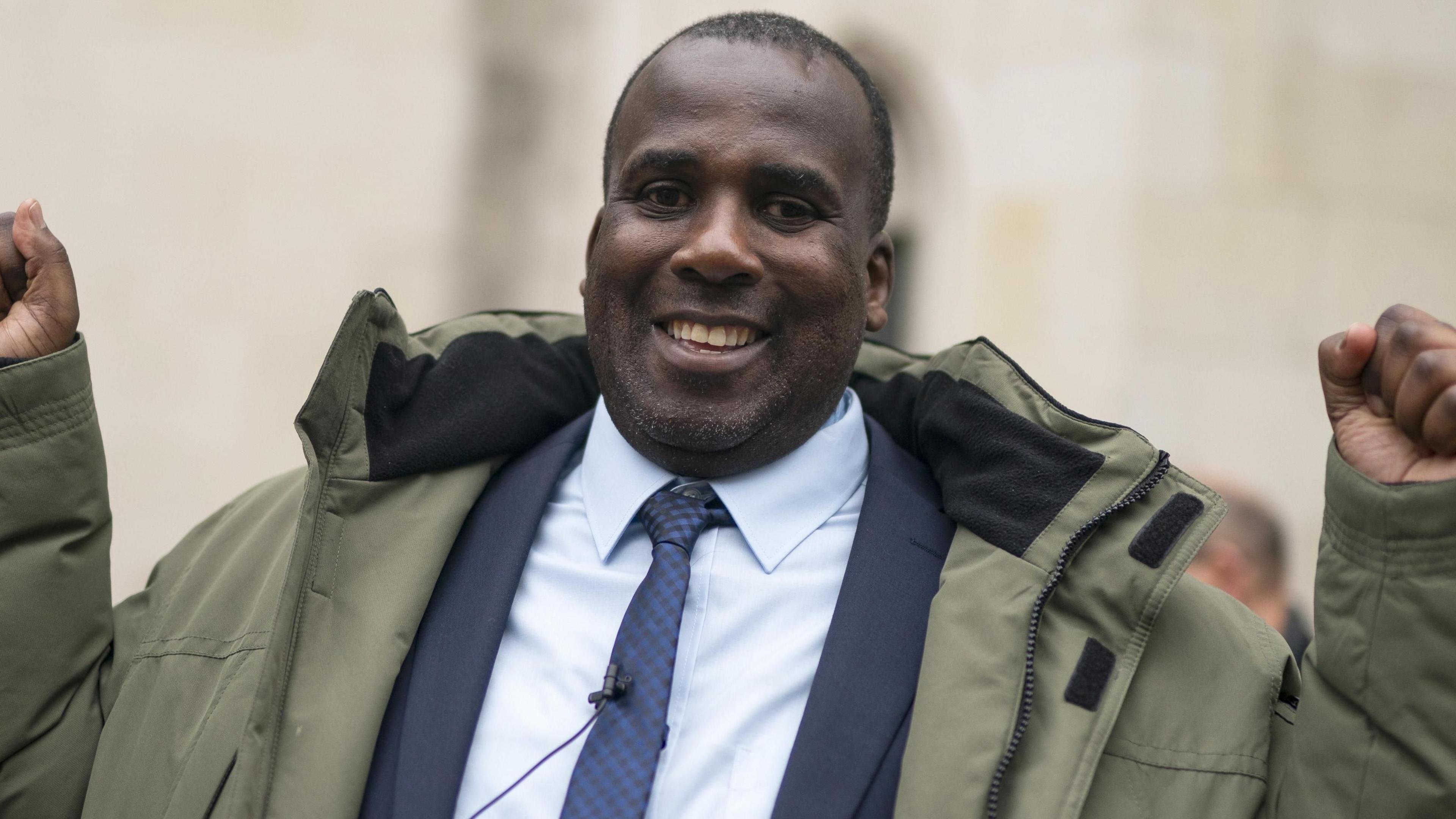
- Published17 March 2021
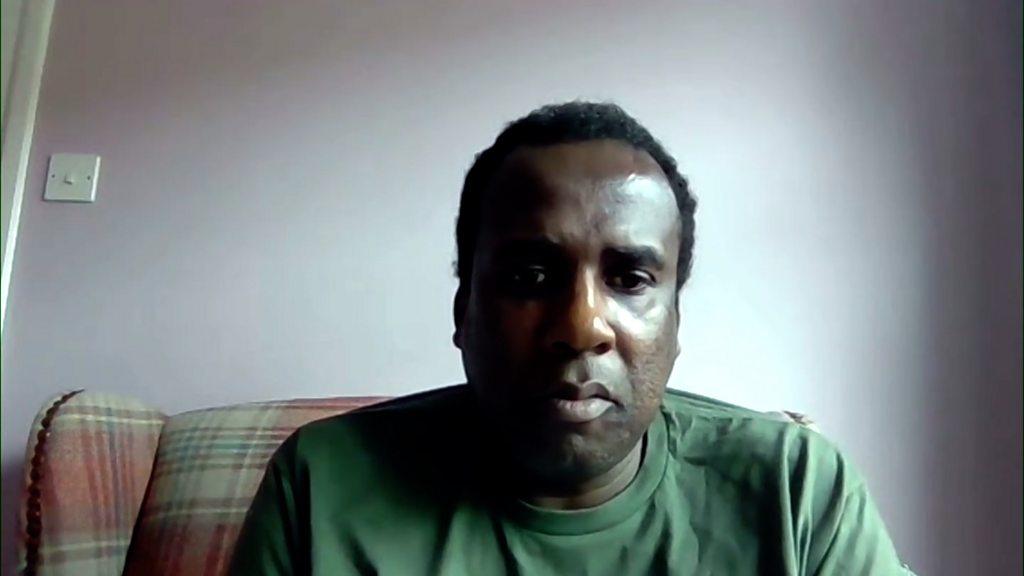
- Published1 March 2024
